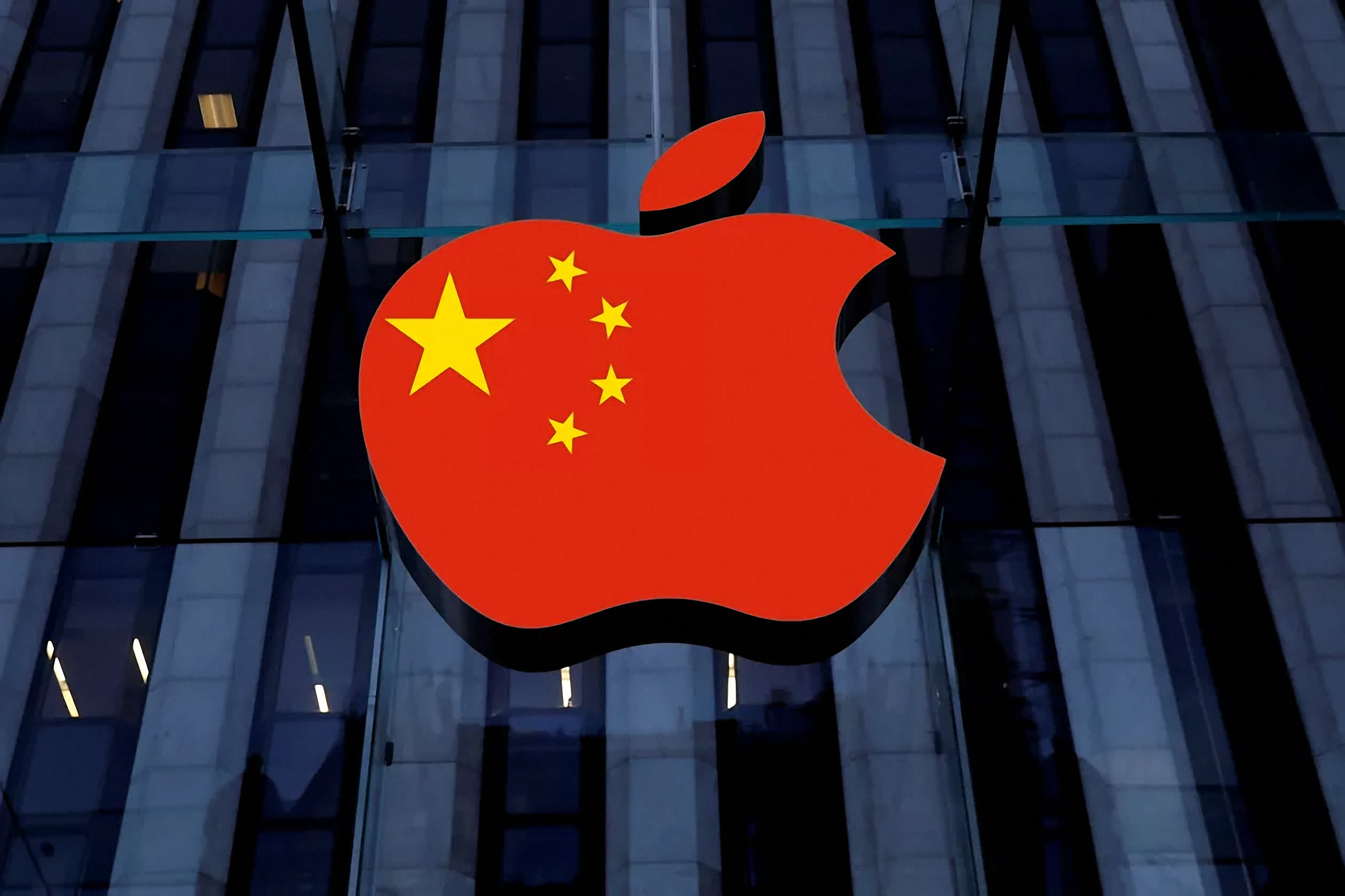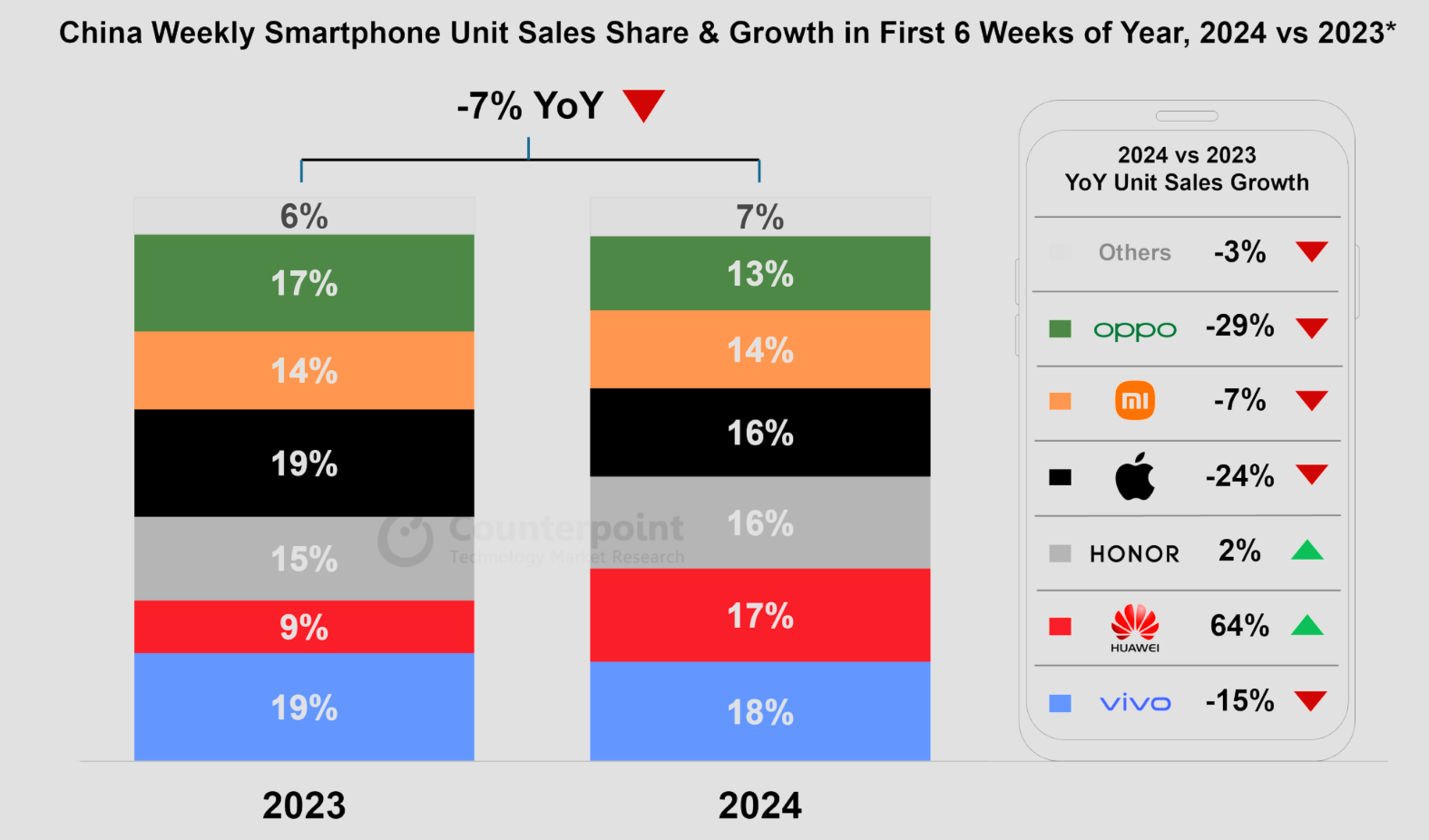In brief: Has China's love of all things Apple come to an end? Even as Sino-American relations deteriorated, Cupertino was the second best-selling smartphone brand in the country last year. But it now sits in fourth place after iPhone sales fell 24% during the first six weeks of 2024.
Much like in other countries, China's smartphone market is going through a rough patch. Its mobile market shrank by 7% in the first few weeks of the year, with Huawei and Honor the only top manufacturers to see YoY unit sales growth, writes Counterpoint Research.
Apple now sits behind local giants Vivo, Huawei, and Honor, who are in first, second, and third place, respectively. Huawei had an especially good 12 months, having increased its market share from 9% to 17% thanks to 64% growth in sales.
News of Apple's struggles in China doesn't come as a huge surprise. A report from Jefferies analysts in January stated that iPhone sales had dropped by 30% in the country during the first week of the year. The analysts also said iPhone volume would fall by double-digits in 2024.
It was only last March when Apple CEO Tim Cook called Apple's relationship with China "symbiotic." Since then, there have been reports of the country banning iPhones from more government offices and sensitive departments, as well as iPhone 15 sales in China not living up to those of the iPhone 14.
Counterpoint says there are a few reasons why iPhone sales have fallen in China this year. The biggest is stiff competition in the high-end market from Huawei. The company launched the 5G-capable Mate 60 last year, which came as a big surprise given how it's been subject to numerous US sanctions since 2019 that restrict its 5G development.
Counterpoint adds that Apple is also being squeezed by aggressive pricing policies from the likes of Oppo, Vivo and Xiaomi.
Apple isn't having a good 2024 so far. Its shares have fallen 10% since the start of the year, it has lost its title as the world's most valuable company to Microsoft, and it has just been fined almost $2 billion by the European Commission over its music subscription streaming policies.

